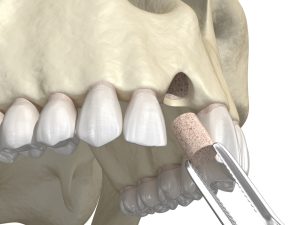Are You a Dental Implant Candidate?
Dental implants represent a revolutionary approach to tooth replacement, but they aren’t a universal solution for everyone. Our team at Polasek Digital Dentistry & Schaefer Dental Group carefully evaluates each patient’s unique oral health profile to determine their suitability for this advanced dental procedure. Ideal candidates typically demonstrate optimal oral health, with no active tooth decay, periodontal disease, or significant bone loss, and possess sufficient jawbone density to support a secure implant.
To learn more about your potential candidacy for dental implants, contact our Howell Implant dentist, Dr. Kyle Polasek, and schedule an appointment by dialing 517-546-8983. Our Livingston County dental practice proudly serves patients from Howell, Pinckney, Wilmington, Fenton, Milford, and surrounding Michigan communities.
Determining Candidacy for Dental Implants
Our Howell dentist will comprehensively evaluate several critical factors to determine your qualification for dental implants:
- Sufficient Bone Density: Advanced imaging technologies like X-rays and CT scans allow us to precisely assess your jawbone’s structural integrity and volume.
- Healthy Gum Tissue: We conduct thorough examinations to ensure your gum health can support successful implant integration.
- Overall Medical Health: Your complete health history plays a crucial role, as conditions like uncontrolled diabetes or certain medications might impact implant success.
- Oral Hygiene Practices: We assess and provide personalized recommendations to optimize your oral care routine.
- Age Considerations: Jawbone development is critical, making age an important factor in implant candidacy.
- Financial Planning: Our team helps navigate insurance coverage and payment options for this advanced dental procedure.
- Medication Review: We carefully examine your medication history to anticipate potential complications.
- Outcome Expectations: We ensure patients understand the realistic outcomes and commitment required for successful implant treatment.
- Recovery Dedication: Patients must demonstrate a willingness to follow post-operative instructions and maintain meticulous oral hygiene.
- Lifestyle Factors: Smoking and excessive alcohol consumption can significantly compromise implant success.
Supplemental Procedures
Some patients may require preparatory treatments to become ideal implant candidates:
- Bone Grafting: Rebuilding lost jawbone volume to create a stable implant foundation.
- Sinus Lift: Creating appropriate space for upper back tooth implants.
- Ridge Augmentation: Enhancing narrow or shallow ridge areas to support implant placement.
Alternative Tooth Replacement Options
If dental implants aren’t suitable for you, we offer alternative restorative solutions like traditional dentures or dental bridges. Our team will help you explore the most appropriate option for your specific dental needs.
Frequently Asked Questions
Dental implant placement requires a completely healthy oral environment. Active gum disease or untreated infections automatically disqualify patients from immediate implant consideration. Our comprehensive treatment approach first focuses on addressing and resolving any existing periodontal conditions. Only after achieving optimal gum health and eliminating active infections will we evaluate your candidacy for dental implants.
Smoking presents significant challenges to dental implant success. Tobacco use can compromise healing processes, reduce blood flow, and dramatically increase implant failure rates. While a smoking history doesn’t automatically disqualify you, our team will conduct a thorough assessment of your overall oral health, healing potential, and willingness to quit or substantially reduce smoking. We may require a period of smoking cessation before considering implant placement.
Certain systemic health conditions can complicate dental implant procedures. Patients with uncontrolled diabetes, Parkinson’s, heart disease, autoimmune disorders, or significant osteoporosis may face higher risks of complications. Individuals taking medications that affect bone metabolism or compromise healing might also be less ideal candidates. However, each case is unique, and our comprehensive evaluation will provide personalized insights into your specific situation.



